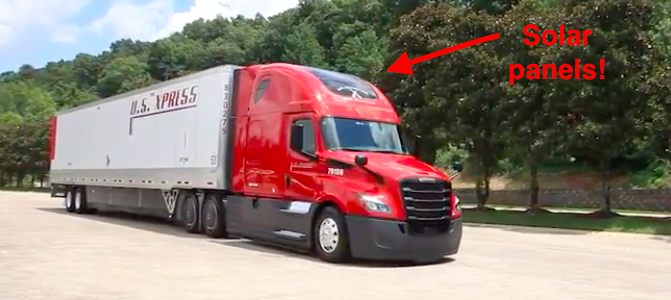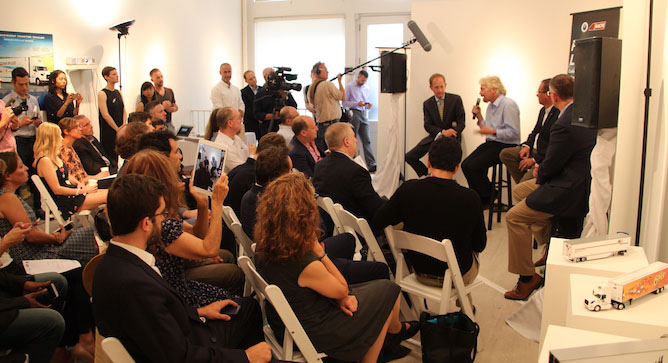When we talk about reducing emissions and our dependence on fossil fuels, alternative fuels tend to get the spotlight. But a shift to entirely new fuels is not going to come all at once, especially for the long-haul trucking industry. In the meantime, there are actually many proven technologies that can help trucks improve efficiency, reduce emissions and save money.
Carbon War Room and North American Council for Freight Efficiency (NACFE) hosted an event earlier this month, called Run on Less, to demonstrate the value of investing in these fuel-saving technologies. Run on Less was a cross-country race of sorts, where seven experienced drivers drove hundreds of miles in Class A trucks outfitted with a variety of technologies to demonstrate how these solutions perform in real-world conditions. The goal was to beat 6.4 mpg, the national fuel-use average for the trucking industry.

During the 17-day, 50,107-mile event, each driver started at a different point in North America and ended up in Atlanta. The drivers dealt with a variety of conditions, like hills, traffic congestion and heavy weight loads, and even headwinds from Hurricanes Harvey and Irma.
Even so, the seven trucks blew the national average away, achieving a cumulative average of 10.1 mpg. Driving at this higher mpg used 2,877 fewer gallons of diesel fuel and saved $7,193 over the national average. The lowest one-day mpg was 7.1 from one of the trucks, still higher than the national average.
The trucks were all driven by experienced drivers and used technology solutions like idle reduction, 6x2 axles, solar panels, trailer and tractor aerodynamics, tire pressure systems, automated transmissions, low viscosity oils and others. These aren’t prototype solutions of the future—all of these options are readily available today.
If the 1.7 million trucks in the United States and Canada achieved the same level of efficiency as the trucks race, they would save 9.7 billion gallons of diesel fuel, $24.3 billion and 98 million tons of CO2 each year. The opportunity is tremendous considering only about 100,000 trucks are outfitted with these types of technologies, according to a Green Sports Blog interview with Mike Roeth, executive eirector of NACFE.

“These results are impressive and show what can be achieved with today’s available technologies, and what happens when you focus your efforts around getting total engagement from the entire stakeholder value chain”, said Scott Perry, Chief Technology & Procurement Officer of Ryder Global Fleet Management Solutions. He’s also chairman of the NACFE.
Each truck employed different solutions, and the point of the event wasn’t to prove which technology is the best. The idea is that trucking companies have a whole range of options at their disposal, and can choose solutions that fit their budget, fleet size and goals.
Sir Richard Branson, founder of Carbon War Room, announced the mid-race results in New York City during Climate Week, calling them a “ray of hope” in an important industry. “It’s not just America that’s going to benefit from the breakthroughs we’re talking about. This is a global benefit that can be shared with the global community. The amount of carbon that we’re talking about that’s going to be saved is gigantic.”
